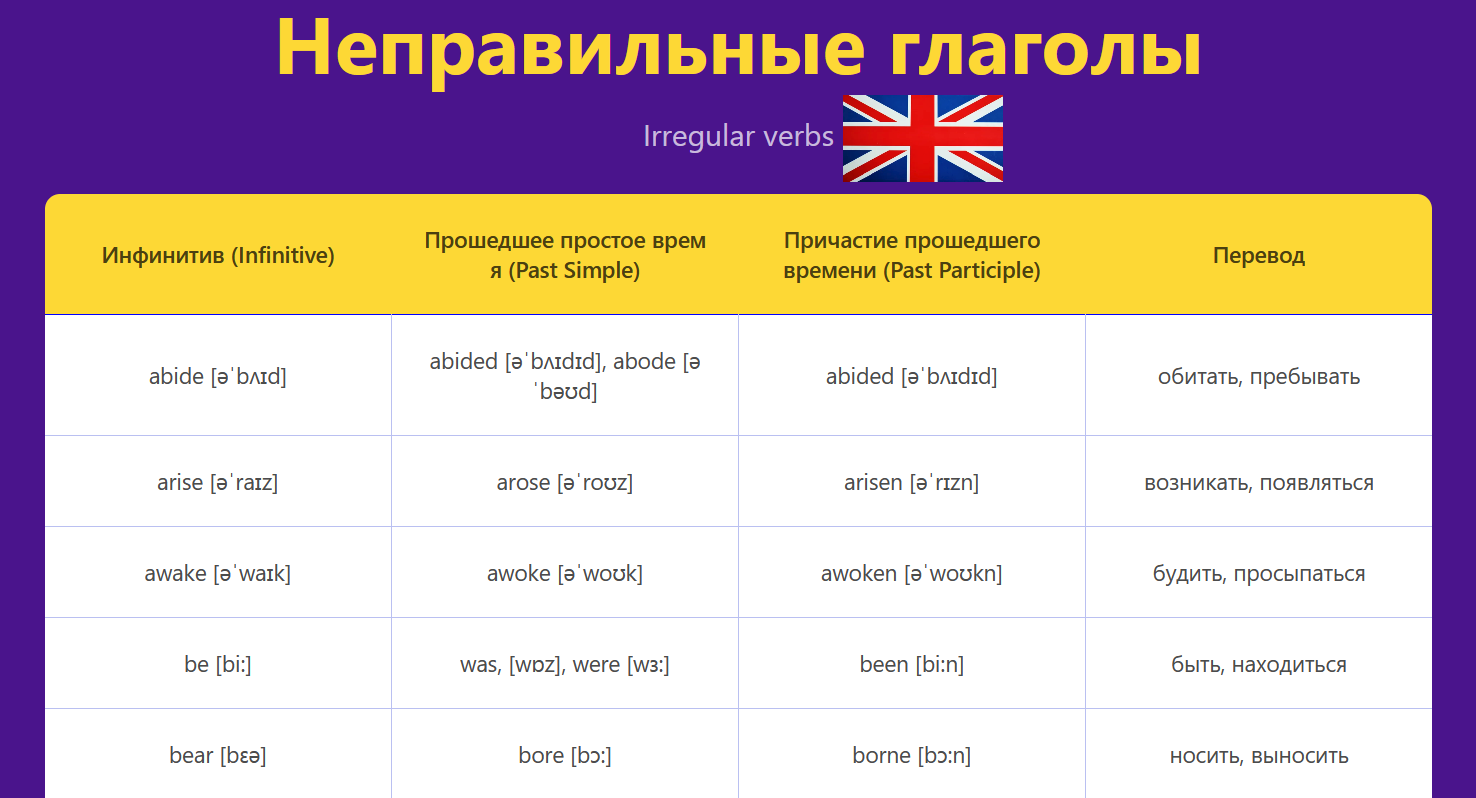Irregular verbs
Facts about irregular verbs:

See the table of irregular verbs HERE
1. Irregular verbs are a historical remnant of Old English.
They have preserved their forms from Old English, where changes followed internal patterns rather than modern rules.
2. There are about 200 irregular verbs, but only 50-70 are commonly used in everyday speech.
The most popular irregular verbs, such as go-went-gone, have-had-had, or be-was/were-been, appear frequently.
3. They vary in their forms.
Some verbs have the same form in all tenses (cut-cut-cut), while others change completely (go-went-gone).
4. The number of irregular verbs is decreasing.
Over time, many irregular verbs have become regular. For example, the word help used to be irregular (holp-holpen).
5. They help with learning phonetics.
Studying irregular verbs enhances understanding of sound patterns, as many share similar endings (sing-sang-sung, ring-rang-rung).
Why are irregular verbs important?
1. Brevity and simplicity.
Irregular verbs are often shorter and easier to pronounce, making speech smoother and more convenient.
2. Expression of basic actions.
Most irregular verbs represent key actions used in daily life: eat, drink, run, sleep.
3. Historical significance.
They preserve linguistic heritage, connecting modern English to its roots.
4. Their use reflects native-level speech.
Correct use of irregular verbs makes your speech sound more natural.
 POWER Full 14POWER Full 141000₽
POWER Full 14POWER Full 141000₽ POWER Full 14POWER Full 142000₽
POWER Full 14POWER Full 142000₽
Оставляя заявку вы соглашаетесь на обработку персональных данных и с условиями получения рекламно-информационных рассылок.
By submitting a request, you agree to the processing of personal data and terms of receiving advertising and informational mailings.